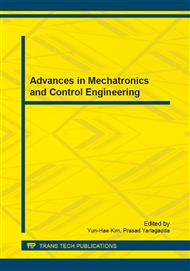p.1095
p.1101
p.1107
p.1114
p.1119
p.1124
p.1129
p.1133
p.1137
Eliminating Cold-Start Problem of Music Recommendation through SOM Based Sampling
Abstract:
Recommendation systems have a prevalent cold-start problem. The problem is occurred might due to new users or new items (music) are added into the system. In this paper, the meaning of the cold-start is narrowed to that the systems do not understand the new user’s preferences. Therefore, systems can not recommend the music to users. Although many recommendation systems have a solution to reduce the cold-start, e.g., general systems utilize random to select songs. The systems random select some music works to user so that systems will know the user’s preferences after they rated the music works. However, systems may cost much time to collect the necessary information when the new user is interesting in some special types of music. Therefore, if systems select various type of music initially, the user’s preferences will be extracted more quickly. That is the cold-start problem can be reduced when the types of initial recommended music are various. In our approach, we utilize SOM to select some music from clusters. According to experiment, SOM selects type of music more average than k-means and random selection. Therefore, SOM can improve the cold-start problem and increase the precision of recommendation results.
Info:
Periodical:
Pages:
1119-1123
Citation:
Online since:
January 2013
Authors:
Keywords:
Price:
Сopyright:
© 2013 Trans Tech Publications Ltd. All Rights Reserved
Share:
Citation:


